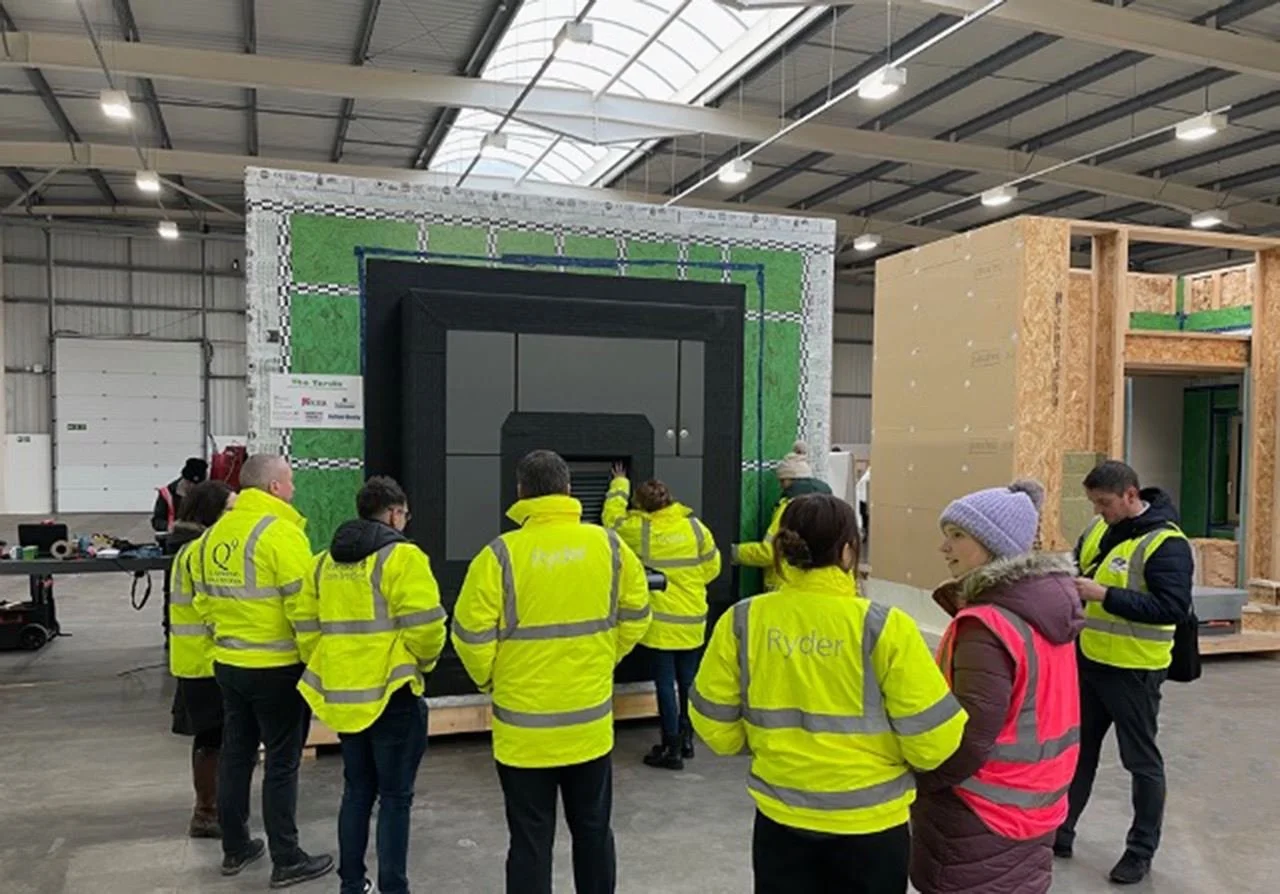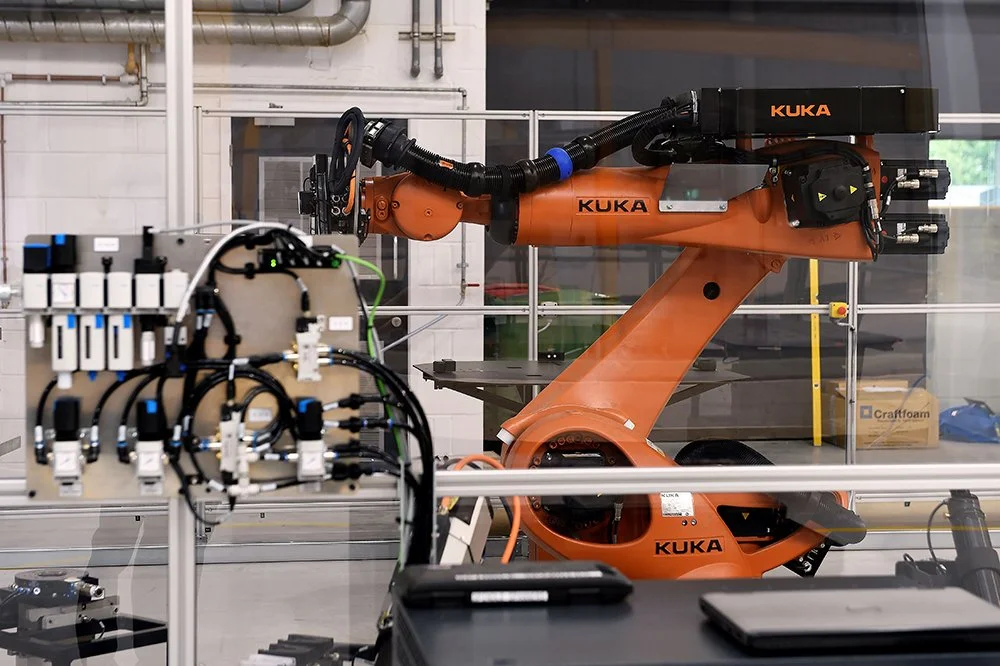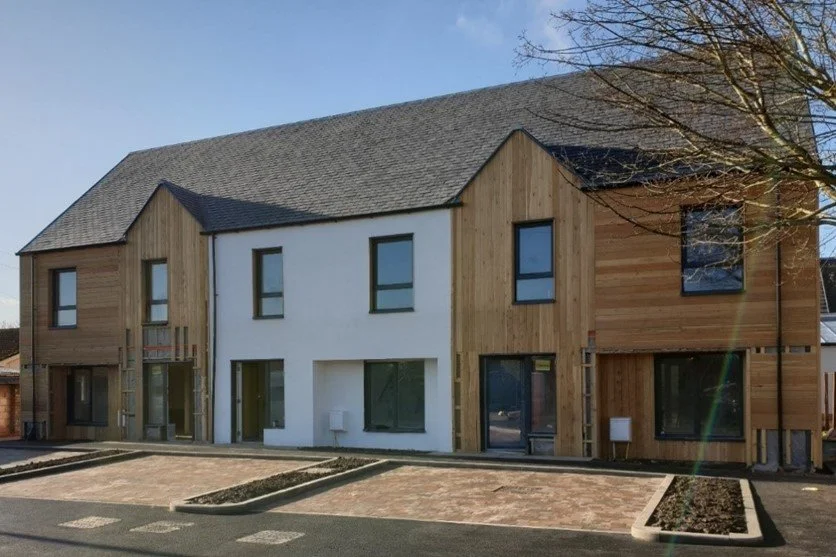
Heat in buildings
The way we heat, cool and power our built environment accounts for 50% of the sector's UK carbon footprint.
We support the sector to become more sustainable through the development of new products, services, processes, and supply chains. We share best practice to inspire and educate, develop skills programmes to support the ongoing transition to a low carbon future, and create the right collaborations that transition innovation into mainstream operation.
HeatSource
HeatSource is a collaborative knowledge hub exploring opportunities in low carbon heat and bringing together knowledge, partners, and resources to help ready the sector for lower carbon targets.
The project is on a mission to support the decarbonisation of Scotland’s built environment, including the creation of our new online information hub aimed at helping industry maximise the opportunities around new zero carbon heating.
Clean Heat Technologies
Decarbonising heat is about reducing our reliance on fossil fuels to provide us with heating and hot water in our new and existing buildings. There are a number of technologies available as alternatives to gas boilers and other ‘traditional’ heating systems.
-
Heat pumps are a climate-friendly alternative to traditional boilers. They work by moving heat from the air, ground or water into a building, using electricity.
When powered by renewable energy, heat pumps offer a reliable and efficient way to cut carbon emissions from heating.
-
Also known as district heating, heat networks deliver heat from a central source to multiple buildings through insulated pipes. This makes them well suited for towns, cities or densely built areas where space is limited and individual systems may not be practical.
-
Solar thermal systems capture the sun’s energy to heat water using rooftop panels. While they do not typically meet full heating needs year-round, they can reduce demand on other systems and work well in combination with other clean heat technologies.
-
Geothermal systems use the Earth’s natural heat to provide space heating and hot water.
Geothermal could include:
Heat from abandoned coal mines
Hot groundwater in sedimentary rock formations
Heat from granite-rich areas with high thermal activity
Research and pilot projects are already exploring how geothermal energy can contribute to clean heat in Scotland, turning industrial legacies into sustainable assets.
Funding opportunities
Access the latest funding opportunities to help you and your workforce.
-
SP Energy Networks has launched a new Transmission Net Zero Fund to help ensure communities, who are facing barriers in taking part in the net zero transition, aren’t left behind on Scotland’s journey to net zero.
The fund will be delivered in partnership with Energy Saving Trust to help eligible communities develop their net zero plans and projects.
The fund is now open and looking for eligible charities and community organisations to express interest in receiving tailored support to develop their net zero plans and low-carbon project ideas.
-
An SME loan can be used to finance the installation of a range of eligible measures including:
heating, ventilation, and air conditioning upgrades.
renewable heat technologies such as installing an air source heat pump.
improving insulation, draught-proofing, double or secondary glazing,
installing LED lighting.
installing solar thermal systems, wind turbines and biomass boilers.
-
The Home Energy Scotland Grant and Loan Scheme provides homeowners in Scotland a grant, interest free loan or a combination of both to install clean heating systems and energy efficiency measures.
For clean heating systems such as heat pumps, grant funding of up to £7,500 is available, with an additional £7,500 of funding available as an optional interest free loan.
For energy efficiency measures such as insulation, grant funding is available up to 75% of the combined cost of measures up to a maximum grant amount of £7,500. The remainder of funding requested can be taken up as an optional interest-free loan up to the maximum funding limit per improvement.
An uplift of £1,500 is available for rural and island homes to both the clean heating and energy efficiency grants, meaning rural households can claim up to £18,000 in grant funding.
-
As part of The MCS Foundation’s work to achieve a carbon-free and future-proofed heating system for every home, we have been supporting the development and roll-out of the UK’s first dedicated heat pump apprenticeship, the Low Carbon Heating Technician Apprenticeship.
-
The Scottish Government's Heat Network Fund offers targeted support for the development of heat networks across Scotland.
The fund provides grants or loans to public, private, and third-sector organisations for the installation, extension, or retrofitting of heat networks.
-
Green Grant Fund aims to support businesses and social enterprises across the Highlands and Islands to transition to net zero.
The funding is a non-repayable grant of up to £250,000, which will cover between 10% and 40% of the total cost of a project. The minimum grant award is £20,000. Projects with a total cost of £50,000 or less are therefore unlikely to be eligible.
Projects can include anything that helps businesses and social enterprises to reduce carbon emissions and make progress towards achieving net zero, for example through energy efficiency measures, renewables, or waste management.
Unlock a strong, sustainable, and smarter built environment.

















